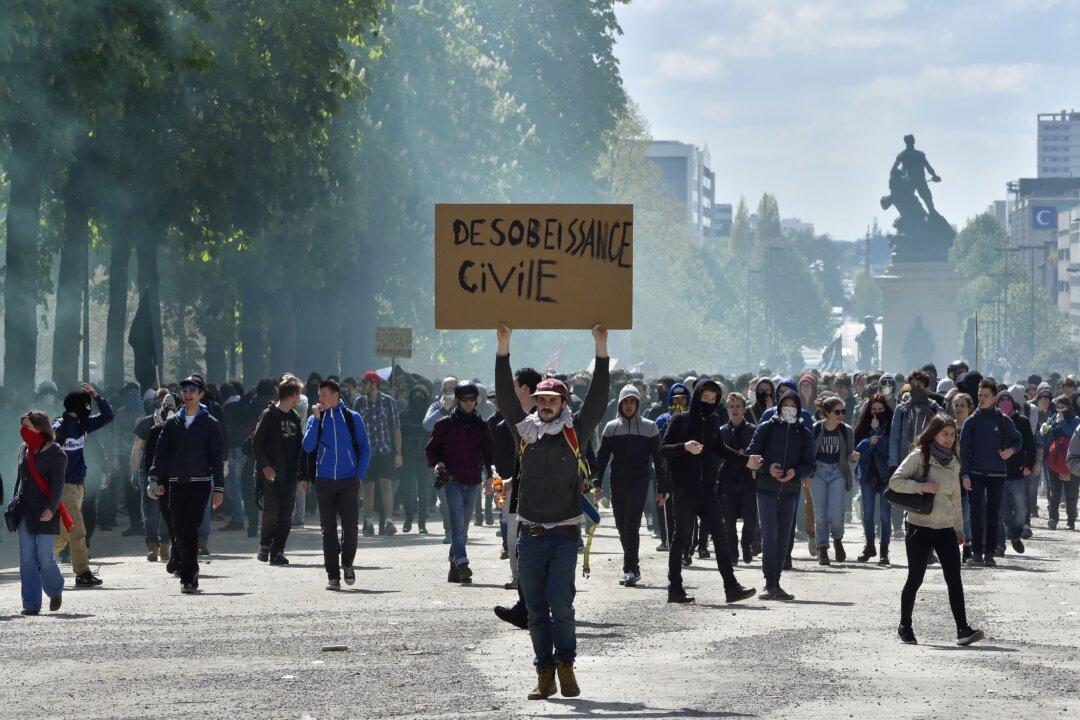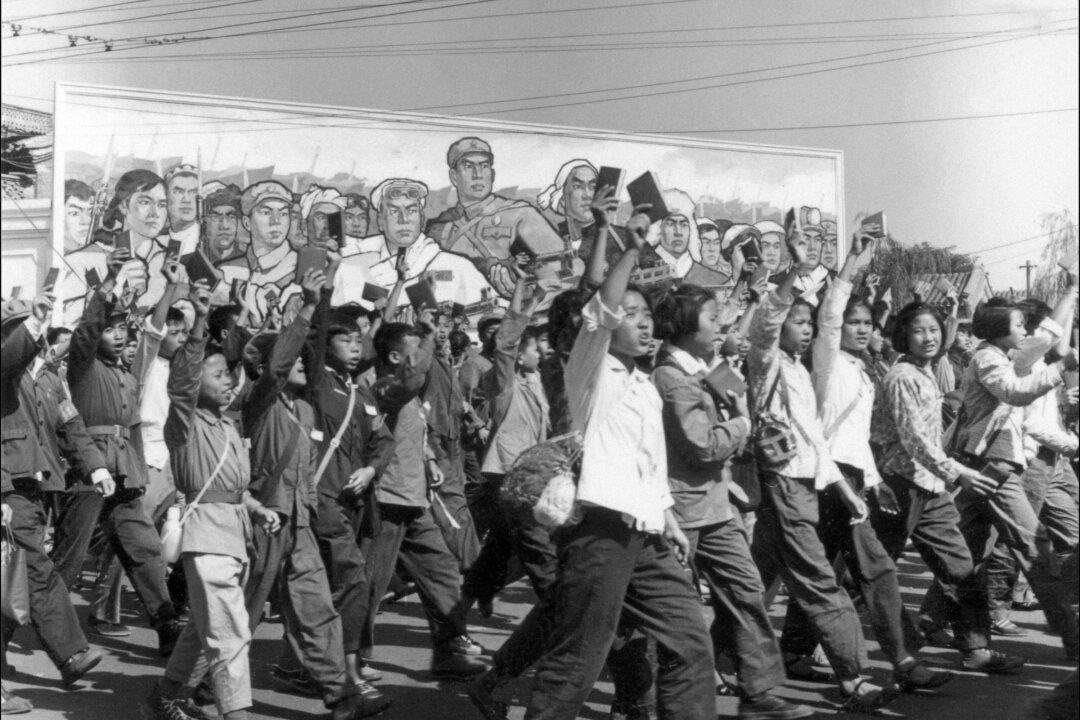A brisk ten-minute walk from where I currently live gets me to Place de la République. Before you get there these days you will see large numbers of gendarmes in riot gear, hear the sounds of a largish crowd in the distance, and, if you’re really unlucky, get to inhale a little tear gas.
The Nuit debout protests are France’s version of the Occupy movement in the United States or the Indignados in Spain. The principal trigger for the current protests was a number of possible changes to labor laws proposed by deeply unpopular and notionally left-wing president François Hollande.

People hold a banner reading "Strike, blockade, and sabotage" as they march during a protest against the government's planned labor law reforms in Nantes, western France, on May 3, 2016. High school pupils and workers protested against deeply unpopular labor reforms that have divided the Socialist government and raised hackles in a country accustomed to iron-clad job security. Loic Venance/AFP/Getty Images




